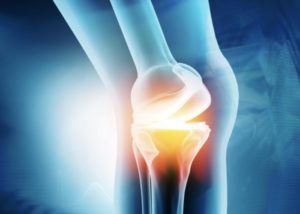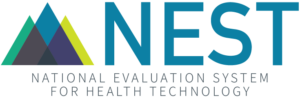Testing the Feasibility of Registry and Claims Data Linkages

- Technology of Interest
Total Joint Arthroplasty (TJA), Primary Total Knee Arthroplasty
- Disease Area
Orthopedics
- Network Collaborators
HealthCore, Mayo Clinic
- Duration
23 months
- Status
Complete
Overview
Medical device manufacturers are obligated to perform post-market surveillance. However, standard post-market reporting mechanisms do not always ensure patient safety (Hauser, 2012). The American Joint Replacement Registry (AJRR) provides a resource to track device usage, adverse events, complications, device survivorship, and clinical measures for total joint arthroplasty (TJA) outcomes. AJRR currently has over 1,100 participating institutions with annual submissions representing 28-30% of U.S. TJA volume.
While data collection efforts are extensive, there are limitations and resulting bias if there remain non-participating providers nationally. As complications and device failure management may occur at institutions outside the Registry network, data pertaining to failures may be missed. Furthermore, patients entered in AJRR prior to 2017 (≥1,000,000) do not have Level II elements (post-operative complications or comorbidity data) included, limiting the Registry’s ability to risk-adjust outcomes. Also, while participants are “required” to submit Level II data, not all are doing so, or are unable to submit all Level II data.
This project aimed to conduct anonymous data linkages of Registry data with Real-World Data (RWD) sources, including private claims databases within the NESTcc Network Collaborators, from Mayo Clinic (Optum Labs) and HealthCore. A data linkage, supported by Weill-Cornell Medical College as an honest broker, was put into place between AJRR and HealthCore, which has longitudinal data through private payer claims on ~350,000 TKA patients. In addition, data was collected through OptumLabs, with data on over 121,000 total knee arthroplasty (TKA) patients and analyzed through Mayo Clinic. Linkages provide a valuable resource for determining more accurate device performance, survivorship, and surgical outcomes, thereby supporting standardized post-market surveillance reporting mechanisms.
The specific aim was to conduct a descriptive study to evaluate the clinical outcomes of TKA implant survivorship, mortality, revision/reoperation, readmission, and Emergency Department visit following TKA 2012-2017 for private health plan members. This study has implications for future anonymous data linkages with additional private payer claims sources and for additional orthopedic procedures.
1. Hauser RG. Here we go again–another failure of postmarketing device surveillance. N Engl J Med. 2012; 366(10):873-5. doi: 10.1056/NEJMp1114695.
